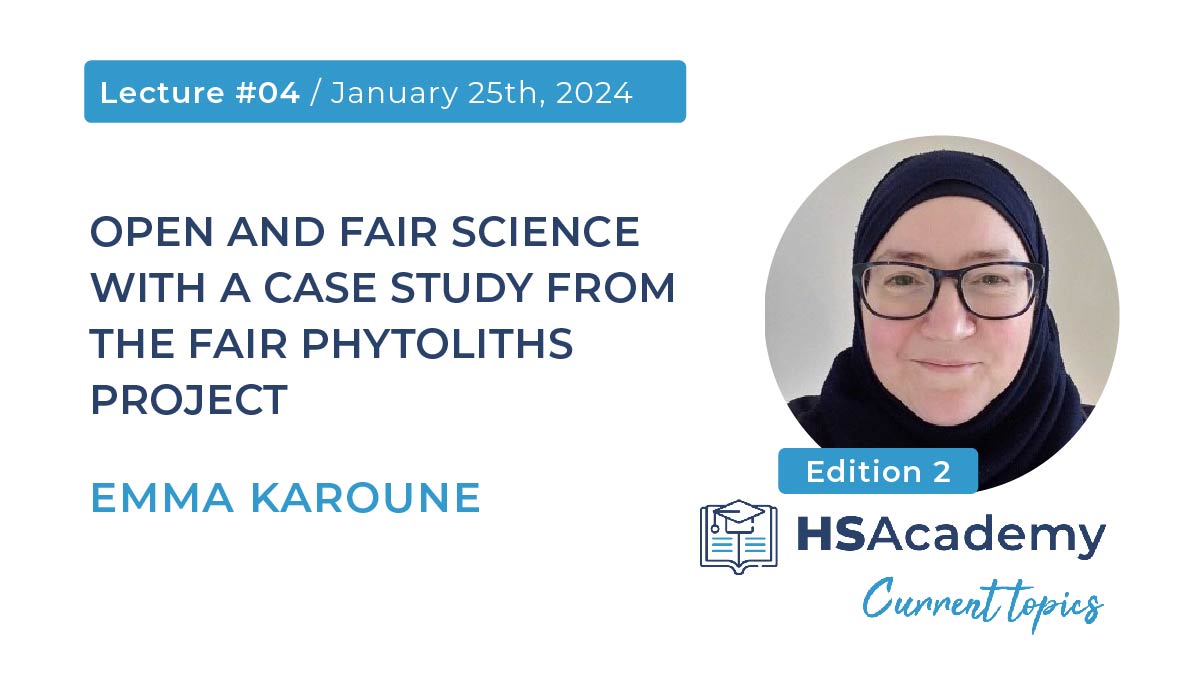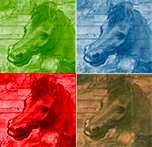
CTinHS Lecture 4 – 2023/24:
Emma Karoune will deliver the 4th lecture of the 2nd edition of the “Current Topics in Heritage Science”: Open and FAIR Science with a case study from the FAIR Phytoliths project on Thursday, January 25th, at 3.00 pm (CET).
Open and FAIR Science with a case study from the FAIR Phytoliths project
There is a growing need to implement open science practices in archaeology with requirements from funders for open access outputs and a need to produce more reproducible and accessible research to make it more sustainable for future use. This lecture will introduce you to the main practices of open science and why it is important for all researcher to start moving towards more open working in archaeology. It will include a discussion of the benefits of practising open science as well as touch on the barriers that have to be overcome. There will also be a case study about the FAIR Phytoliths project – this is a project that aimed to assess phytolith data in terms of the FAIR data principles and has formed an open community to tackle implementation of open science practices.
Date
January 25th, 2024 at 3 pm (CET)
You will learn
- what open science is;
- why do open science;
- benefits of practicing open science;
- barriers to open science;
- case study about starting to implement open science.
Key topics we’ll cover
- open science;
- open research;
- open access;
- reproducibility;
- FAIR
Duration
45 minutes (30 minutes presentation + 15 minutes Q&A)
Speaker
Emma Karoune is a specialist in Archaeobotany with a PhD from the Institute of Archaeology, University College London. Emma works at The Alan Turing Insitute as a Senior Research Community Manager across multi-domains. She is a core contributor to The Turing Way (an open-source community-led guide to reproducible research). Emma is working closely with the Turing Skills Team to lead a project on Professionalising traditional and modern data science roles. This project is funded by a Skills Policy Award. She is the Principal Investigator on the FAIR Phytolith Project (Historic England and Universitat Pompeu Fabra) funded by EOSC Life. Emma is a Software Sustainability Institute Fellow focusing on promoting a more accessible and inclusive research culture. She is also working with Elixir-UK as a FAIR Data Stewardship Training Fellow to develop training resources for FAIR data management. Emma works closely with the Open Life Science Programme as a mentor and expert.
Recommended readings
- Marwick, B. et al. (2017) ‘Open Science in Archaeology’, The SAA Archaeological Record 17(4), pp. 8–14
- Kansa, E. & Kansa, S.W. (2021) ‘Digital Data and Data Literacy in Archaeology Now and in the New Decade’, Advances in Archaeological Practice 9(1), pp. 81–85. doi:10.1017/aap.2020.55
- Kansa, E., Kansa, S.W. & Goldstein, L. (2013) ‘On Ethics, Sustainability, and Open Access in Archaeology’, The SAA Archaeological Record 13(4), pp. 15–22
- Karoune, E. (2022) ‘Assessing Open Science Practices in Phytolith Research’, Open Quaternary 8. doi:10.5334/oq.88
- Karoune, E., & Plomp, E. (2022). Removing Barriers to Reproducible Research in Archaeology (Version v5). Zenodo: https://doi.org/10.5281/zenodo.732002
